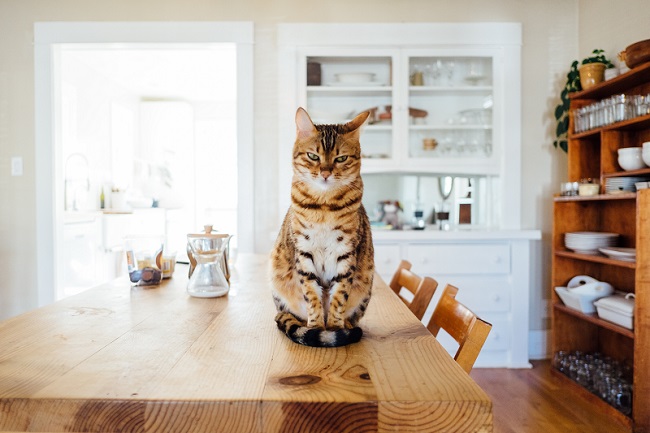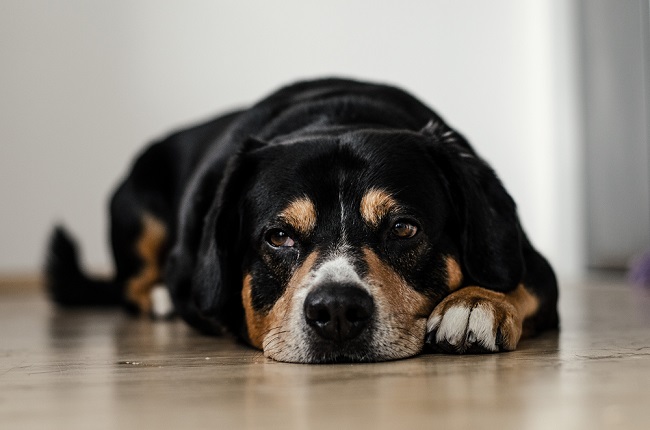

Having pets is an absolute joy - most of the time, anyway. When they're young, you run around trying to stop them chewing and scratching things that are either dangerous to them or precious to you. As they grow, they become fully-fledged members of the family.
Nothing beats the excitement of a dog when you arrive home from work. Or the contented purr of a cat when it settles on your lap for a snooze. In this post, we give you some tips on pet-proofing your kitchen, so that you and your furry flat-mate can live together in harmony.
Be savvy with your food storage
The best way to stop wandering paws and curious tongues getting hold of things they shouldn't is to remove the temptation. Don't leave food out on worktops. Make sure cupboard doors and drawers are always closed. If you've got a particularly crafty cat or canine, choose handleless cabinet doors so they can't learn to open them (it's been known to happen).
Take care to keep certain food items well away from pets. Chocolate is notoriously toxic for dogs and cats. So make sure you keep your Cadbury's stash somewhere safe, far out of reach of curious paws. There's a few other things that pets shouldn't have*:
- Garlic, onion and chives - both raw and cooked products from the onion family are harmful to dogs and cats
- Grapes and raisins - these can cause severe liver and kidney damage to dogs, and shouldn't be given to cats either
- Avocado - it's great on toast, but keep it away from pets
- The sweetener xylitol - peanut butter is a good treat for dogs but make sure the type you use doesn't contain the artificial sweetener xylitol. This sugar substitute is also found in sweets and chewing gum
- Alcohol - this one goes without saying (we hope!)
*This isn't a complete list so if you're ever in any doubt, always check with your vet.
Choose your interiors wisely
Choose materials and finishes that wipe clean easily. Gloss kitchen doors are perfect if you've got pets, as paw prints and dirt wipe straight off.
Think about your flooring too - white tiles look crisp and fresh, but they will show every single muddy print and bit of fur. Darker tiles (in a slate grey shade, for example) will work better because, quite simply, you'll be able to get away with less frequent mopping! If your beloved companion is a touch clumsy on its feet, a couple of mats will stop them slipping.
Water-resistant paint on walls is also incredibly useful. We've all been there when Rover's come in from a rainy walk and has decided to shake everywhere, so wipe-clean walls are a must.
Keep pets busy
Pets are absolute masters at getting in the way. If you're using the oven or moving hot pans around, the last thing you want to do is trip over a stray paw. So give them plenty of toys to keep them occupied. And keep them out of the kitchen while you're cooking and eating. Kong toys are great for dogs (hard-wearing rubber toys that can be stuffed with treats), and cats love to climb things, so a couple of climbing trees will keep frisky felines busy.
A few final tips & tricks
- Dogs don't like the smell of vinegar, so if there's somewhere you really don't want your pup to go, dilute some vinegar with water and spray the no-go zone. It won't harm your pet, they just dislike the scent.
- Cats hate lemons. Want to stop your cat jumping on your worktops? Wipe surfaces with a lemon-scented cleaner.
- If you can, swap your bin for one that's integrated with your units. This makes it harder for pets to get near your rubbish, meaning there's less chance of them making a mess and eating something they shouldn't.
Have you got any tips on pet-proofing your kitchen? Share them with us on Facebook or find us on Twitter.

